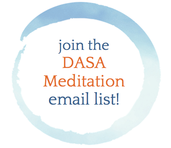
The success of a student in their meditation practice may have everything to do with two single factors, the commitment of the student, and the awareness of the teacher.
Americans paid attention to this ancient practice once meditation hit the cover of Time Magazine and Scientific American. Then, America's top CEOs, famed actors and actresses, and NFL football team members all came forth to proclaim their health and personal success was credited in large to their daily Vedic meditation practice.
The mind-body wellness of meditation
Meditation is a vehicle that can transport you from frenzied to calm, taking you back to your center, a position of balance. For creatives, the meditative state is the point of pure inspiration. To layer even more benefits, there is an absurdly long list of medically-backed health benefits for the mind and body, such as heart health, brain health, deeper sleep, lower stress, and the ability to flex easily with the occasional curveball that life may throw.
Over the years, I find people continue to ask me the same question over and over, "What is the best form of meditation?" There are many useful meditation forms; some are simply more effective than others. This article explains two fundamental approaches to meditation.
Directive versus non-directive meditation
Within the practice of meditation, there are two primary categories, directive and non-directive. The directive form requires focused attention, while the non-directive form allows the mind to wander. Although the origins of both forms emerged from religious roots, many contemporary versions have risen—free from dogma and religion, with a primary focus on stress reduction, health, and happiness.
Vedic Meditation is considered to be a non-directive method. It is the oldest form of meditation that traces back over 5,000 years to ancient India. Like yoga, this ancient meditation form links to "The Vedas," a large body of ancient knowledge composed of ancient Vedic Sanskrit texts. These texts constitute the oldest layer of Sanskrit; this honored technique of Vedic meditation was handed down in the oral tradition, from teacher to student, and continues to thrive to this day.
Vedic meditation uses a silent mantra and (or) the breath as a vehicle to reach deep states of stillness. This non-directive form of meditation is widely described as "effortless'. In practice, there is a calm awareness brought by the breath or mantra; there is no need for self-control, concentration, or the attempt to clear the mind of all thought; the mind is allowed to wander.
This form of meditation begins by directing attention to a silent mantra or the breath. As the mind drifts to thoughts and impressions, the attention is gently redirected back to the mantra. The non-directive form allows the body to naturally settle into a peaceful state of awareness. With little effort, the mantra (or breath) leads us to a comfortable state of quiet stillness. The time during meditation will seem to slip by quickly. And, when we come out of the meditation, we feel alert, refreshed, and calm.
The long-time tradition of Vedic meditation continues to be one of the best self-care tools available today. For the many who choose to practice Vedic meditation, this form seems fluid and natural to the mind and body. There is no need for the concentration required in other methods and often appeals to those who live a demanding lifestyle. Through practice, one naturally develops awareness, acceptance, and a sense of pure serenity.
Directive forms include: Zen Buddhism, Vipassana, Mindfulness
The term Zen is derived from the Japanese pronunciation of the Middle Chinese word 禪(Chan), which traces its roots to the Indian practice of Dhyāna (meditation).
It is my understanding that Zen meditation emphasizes rigorous self-control. In this practice, the teacher directs the student to "maintain focus" on the breath, sensations, or feelings of the present moment. Mindfulness falls under the category of both directive and Zen Buddhism and uses a technique called "open-monitoring," which focuses attention combined with non-judgment.
Medical study favors non-directive meditation
A well-known medical study compared directive and non-directive meditation. The Norwegian University of Science and Technology's study compared two meditation styles. Non-directive silent-mantra meditation proved to be the most effective form, over Mindfulness. Both forms proved to be effective, however, the CT scans used in the study compared the methods and proved an astonishing difference favoring non-directive meditation.
Modern science is only beginning to understand the benefits of meditation and the mind-body connection. There is no shortcut to inner peace or higher consciousness. Find a good solid practice, and be consistent, and you will begin to feel the benefits. That I know for sure.
I recognize the value of both styles of meditation. I sincerely believe that with a qualified teacher, each form will get you to the same place. Look for a certified teacher who has expertise in both teaching and practice. Ask questions about the technique, their training and certification, and the support they will provide. Then choose your path. The success of a student in meditation practice may have everything to do with two single factors, the commitment of the student, and the awareness of the teacher.
Best of luck on your path to health and higher awareness.
Resources:
https://en.wikipedia.org/wiki/Zen
https://en.wikipedia.org/wiki/Vedas
https://www.ncbi.nlm.nih.gov/pmc/articles/PMC3935386/
| how_your_brain_works_during_meditation.pdf |
Introduced to meditation at a young age of 15, Lorraine is a second-generation meditation instructor and trainer. As executive director of DASA Meditation, she leads the annual teachers' training program in California and Pennsylvania. Lorraine completed advanced trauma and resilience training through the Center for Mind Body Medicine in 2019.
Developing Awareness through Self-Actualization
Founded in 1975
DASA Meditation supports the many fine meditation practices in the world.
We encourage you to find the meditation practice that is the perfect fit for you.
Personal instruction / Custom wellness programs
www.DASAmeditation.org






 RSS Feed
RSS Feed

